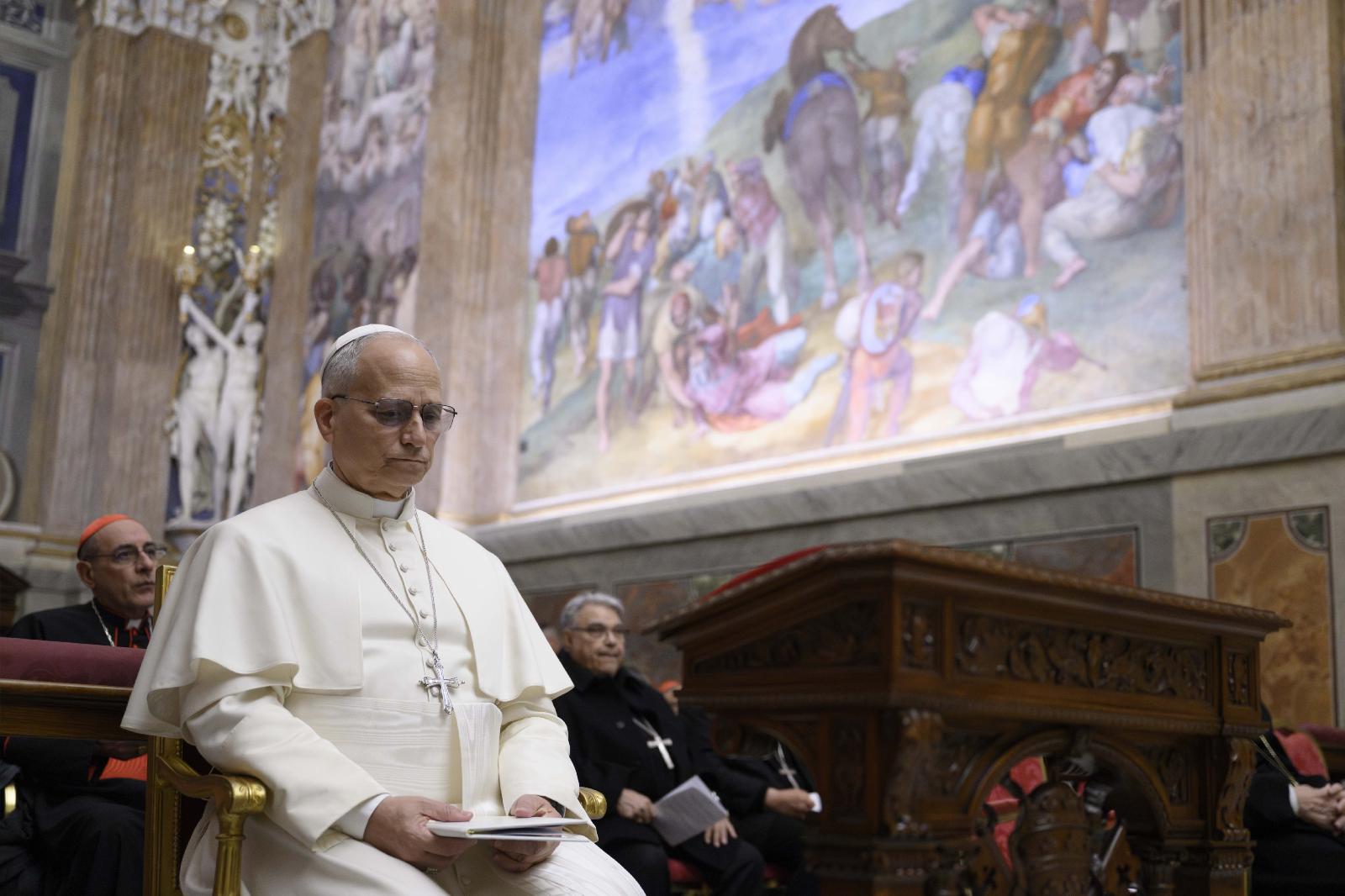Brussels is done being the world’s digital policeman
BRUSSELS — You can even put an exact date on the day when Brussels finally gave up on its decade-long dream of seeking to be the predominant global tech regulator that would rein in American tech titans like Google and Apple.
It came last Wednesday — Nov. 19 — when the European Commission made an outright retreat on its data and privacy rules and hit pause on its AI regulation, all part of an attempt to make European industries more competitive in the global showdown with the United States and China.
It sounded the death knell for what has long been described as the “Brussels Effect” — the idea that the EU would be a trailblazer on tech legislation and set the world’s standards for privacy and AI.
Critics say Washington is now setting the deregulatory trajectory, while U.S. President Donald Trump is battering down Europe’s ambitions by threatening to roll out tariffs against countries that he accuses of attacking “our incredible American Tech Companies.”
“I don’t hear anybody in Brussels saying ‘We’re a super regulator’ anymore,” said Marietje Schaake, who shaped Europe’s tech rulebooks as a former European Parliament member and special adviser to the European Commission.
The big pivot away from rule-setting came in a “digital omnibus” proposal on Wednesday — a core part of Commission President Ursula von der Leyen’s “simplification” program to cut red tape to make Europe more competitive.

“Whether you call it ‘simplification’ or ‘deregulation,’ you are certainly moving away from the high watermark era of regulation,” said Anu Bradford, a professor at Columbia University who coined the term “Brussels Effect” in 2012.
The deregulation drive followed a year in which the Trump administration pressured the EU to roll back enforcement of its tech rulebooks, which Big Tech giants and Trump himself deem “taxes” targeted at U.S. companies.
The digital omnibus was one of the “main discussion points” at a meeting between the EU’s tech chief Henna Virkkunen, U.S. Commerce Secretary Howard Lutnick and Trade Representative Jamieson Greer on Monday.
“We adopted a major package that would have an impact not only on EU companies, but also on U.S. companies, so this is the appropriate moment … to explain what we’re doing on our side,” European Commission spokesperson Thomas Regnier told reporters on Monday when asked why Virkkunen had discussed the topic with her U.S. counterparts.
Lutnick, however, told Bloomberg that Washington was seeking more than just an explanation of EU laws — it wanted changes to its tech rulebooks as well.
U.S. giants like Google and Meta have led a full-frontal lobbying push to replace heavy-handed EU enforcement with lighter-touch rules.
Behind the push to break the shackles for tech firms is a fear of missing out on the promised economic boom linked to AI technologies. The bloc has traded its role as global tech cop for a ticket to the AI race.
Global first
Brussels showed its ambition to lead the world in regulating the online space throughout the 2010s.
In 2016 it adopted the General Data Protection Regulation. Since then, the law has been copied in new legislation across more than 100 countries, said Joe Jones, director of research and insights at the International Association of Privacy Professionals.
When the GDPR came into force, international companies like Microsoft, Google and Facebook acknowledged it spurred them to apply EU privacy standards globally.
It served as a quintessential case of the Brussels Effect: When setting the bar in Brussels, multinational firms would roll out standards across their businesses far beyond the EU’s borders. Other governments, too, copied some of Brussels’ early attempts at setting the rules.
After the GDPR, the EU adopted other laws that had the ambition of reining in Big Tech, either by pressing platforms to police for illegal content through its Digital Services Act or by blocking them from using their dominance to favor own services through the Digital Markets Act.

The EU’s latest blockbuster tech rulebook, the Artificial Intelligence Act, was Brussels’ latest attempt at pioneering legislation, as it sought to address the risks posed by the fledgling technology.
“There was more confidence in the EU’s regulation, partially because the EU seemed confident. Right now, when the EU seems to be retreating, any government around is also asking the same question,” Bradford said.
Right after the EU adopted its risk-focused AI rulebook, Trump took office and scrapped AI safety rules embraced by his predecessor Joe Biden.
The changing of the guard in Washington came right as Brussels was waking up to the need to be competitive in a global technology race. Former Italian Prime Minister Mario Draghi presented the EU’s competitiveness report in 2024, just weeks before Trump won a second term.
“I think the Brussels effect is still alive and well. It just has a bit of the Draghi effect, in that it has a bit of this geopolitical innovation, pro-growth effect in it,” said IAPP’s Jones.
According to German politician Jan Philipp Albrecht, a former European Parliament member who was a chief architect of the GDPR, Europe has become blind to the benefits of its regulatory regime that set the gold standard.
“Europeans have no self-secureness anymore … They don’t see the strength in their own market and in their own regulatory and innovative power,” Albrecht said.
Washington effect
Other critics of deregulation are taking a step further, claiming that Washington has hijacked the Brussels Effect — but just on its own terms.
“In an odd way, maybe the Trump administration has taken inspiration from the Brussels Effect, in the sense [that] they see what it means for this one regulating entity to be the one that sets global standards,” said Brian J. Chen, policy director at nonprofit research group Data & Society.
It’s just, “they want to be the ones setting those standards,” Chen said.
The Trump administration pressured Brussels to tone down its tech regulation during heated trade talks this summer, POLITICO previously reported.
That the EU followed through with scaling back its tech laws just as the U.S. is pressing the EU is bad optics, said Schaake, the former lawmaker. “The timing of the whole simplification [package] is very bad,” she said.
She argued that it’s essential to deal with the unnecessary burden on companies, but issuing the digital omnibus after the U.S. pressure “looks like a response to that criticism.”
Commission spokesperson Thomas Regnier dismissed the idea that the EU was acting on U.S. pressure. “On the digital omnibus, absolutely no third country had an influence on our sovereign simplification agenda. Because this omnibus is about Europe: less administrative burden, less overlaps, less costs,” Regnier said in a comment on Friday.
“We have always been clear: Europe has its sovereign right to legislate,” Regnier added. “Nothing in the omnibus is watering down our digital legislation and we will keep enforcing it, firmly but always fairly.”
This article has been updated to include new developments.




















:quality(85):upscale()/2025/08/14/650/n/1922283/470aeb83689df49cdc1bb6.14084110_.jpg)
:quality(85):upscale()/2023/10/03/668/n/1922283/1f15c8a9651c2d209e5eb5.32783075_.jpg)
:quality(85):upscale()/2025/09/09/891/n/1922283/7222624268c08ccba1c9a3.01436482_.png)
:quality(85):upscale()/2023/09/18/918/n/1922398/a1136b676508baddc752f5.20098216_.jpg)
:quality(85):upscale()/2025/10/09/670/n/1922283/00b944c868e7cf4f7b79b3.95741067_.jpg)
















